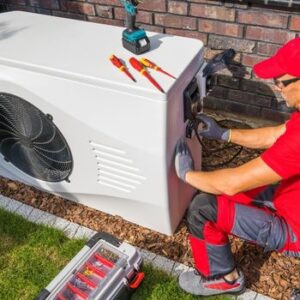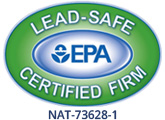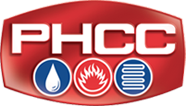Causes of a Malfunctioning Heat Pump
 In recent years, heat pumps have grown in popularity due to more efficient operation that decreases energy usage. These devices draw in outside air to heat homes, delivering up to three times as much heat as conventional solutions.
In recent years, heat pumps have grown in popularity due to more efficient operation that decreases energy usage. These devices draw in outside air to heat homes, delivering up to three times as much heat as conventional solutions.
Yet similar to furnaces and boilers, you may notice that your heat pump does not effectively keep your house warm. Understand why this heat source may be malfunctioning.
How a Heat Pump Works
Heat pumps utilize energy from the outside air. Refrigerant within the pump cools the energy so it forms a hot gas, which then passes into the indoor pump unit. Once this occurs, the hot air gets released into your home and through your ducts, where the gas inside the pump cools. This cycle repeats to keep your home warm and reverses during the warmer months to cool it.
Heat pumps have two basic designs. An air source pump utilizes the outside air to heat and cool your home and has a ductless or ducted design. Ground source heat pumps draw energy from the ground outside and also divert air from your home’s interior to this location.
Common Heat Pump Issues
If your heat pump has been malfunctioning, it could be caused by a number of problems.
The Pump Won’t Turn Off
You will hear the heat pump and notice the impact on your energy bills. Multiple factors can cause your heat pump to run all the time without interruption, including:
- It’s too small for your home or apartment and needs to work overtime to warm the space.
- You’ve set the thermostat too high or low and the heat pump struggles to maintain the ideal temperature.
- You haven’t changed the air filter and it’s become clogged, preventing air from passing through.
- Components are dirty or broken. A damaged contactor affects how much electricity the heat pump receives, while dirt-covered coils interrupt the heat-transfer process.
- The refrigerant has started to leak, affecting how well the pump warms or cools the outside air.
You Don’t Feel Warm or Cool Air
The heat pump may be on but your home doesn’t seem to feel warm. This can be due to a:
- Blockage in the pump from debris or ice accumulation
- A dirty filter preventing air from reaching the compressor
- Low refrigerant levels
The Heat Pump Isn’t Working
If your heat pump won’t turn on or stalls, this could be a sign of:
- A closed or blocked register preventing your home from receiving warm air.
- An issue with the thermostat, in which the ideal temperature range is not communicated to the heat pump. The thermostat may also incorrectly detect your home’s internal temperature.
- An electrical issue in your home, including a tripped breaker or blown fuse.
- A power issue with the heat pump. One of the indoor or outdoor switches may be turned off, the pump may be experiencing electrical failure or the starter capacitor may not be sending power to the pump’s motor. In this latter scenario, you’ll hear a clicking sound as the pump tries to turn on.
- A defective reversing valve that affects power in heating or cool mode. In this case, only one mode seems to work.
- A dirty filter blocking air flow.
Outdoor Issues
You may see ice on the exterior of your heat pump. Snow and ice can affect how well the pump absorbs air from the outside to warm your home. Defrost mode can help melt this accumulation but may not be working as effectively if:
- Snow and ice continue to accumulate around your heat pump
- The outdoor fan blower has become damaged or stopped working
- The heat pump doesn’t switch to air conditioning mode to heat the exterior, a sign of a defective reversing valve
- Low refrigerant levels are affecting how well the pump transfers heat
Indoor Issues
In these cases, the pump’s indoor operations prevent the effective transfer of heat into your home. This process may be interrupted due to:
- Electrical and power issues affecting the operation of the indoor air handler or motor
- The indoor air handler or blower motor no longer working
Short Cycling
The heat pump seems to turn off frequently. This can be a sign that your heat pump is too large for your home or it’s overheating from being overworked. Additionally, shorter cycles can indicate your unit does not have enough refrigerant to get through a full cycle or the thermostat is incorrectly detecting the interior temperature.
Leaks and Strange Smells
These two issues often go hand-in-hand. You’ll see dampness on the wall, then notice a musty or sour odor indicating the presence of mold. Ignoring this issue can cause mold to build up in your home and the heat pump to experience electrical damage.
These factors may be related to:
- Ice accumulating on the evaporator coil – which can occur in response to low refrigerant levels
- A clogged drain line causing condensation to build up inside the unit
- A cracked condensate pan causing moisture to leak out
- Moisture causing mold to accumulate inside the heat pump
- An animal may have crawled inside the heat pump and caused damage or died
Are you concerned about your heat pump? Have the HVAC technicians at MJ Fahy & Sons examine your system and make the necessary repairs. To schedule service, contact us today.




